February 23 – March 3, 2016
Sonje lapli ki leve mayi ou la.
Remember the rain that made your corn grow.
— A Haitian Creole Proverb
“Water is the foundation of life. And still today, all around the world, far too many people spend their entire day searching for it.”
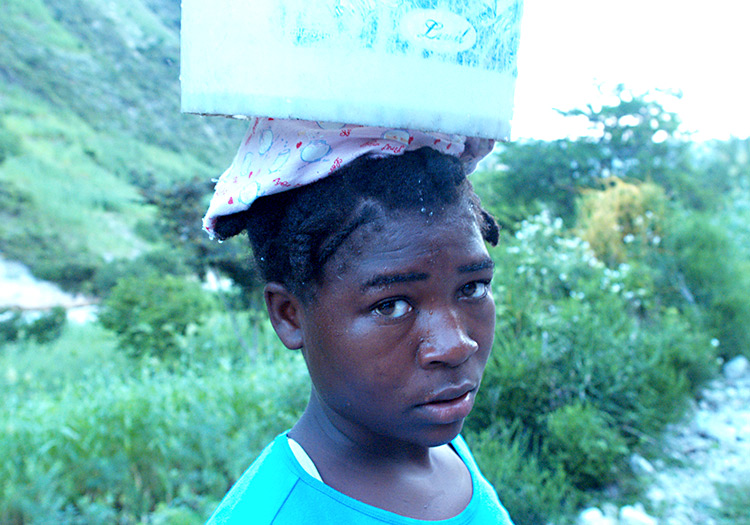
Imagine that you go into your kitchen and turn on the water to fill a glass, and there is no water. In the States, you would call your plumber or the water company to come fix the problem. But for millions of Haitians, this is their life every day. There are no faucets to turn on and off, they must leave their huts in search of water, and every day they send their children out to find water among the dirt and rocks of the surrounding mountains.
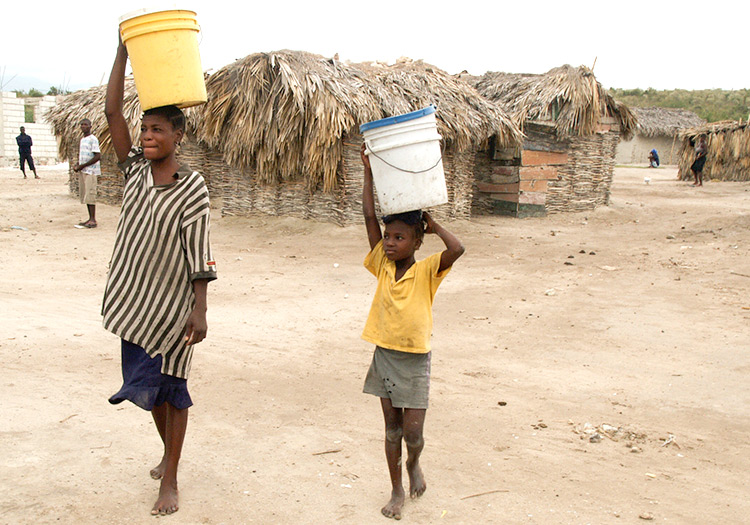
Fetching water has always been a part of their lives, and they spend many hours each day looking for a water source and then they carry their full buckets home.
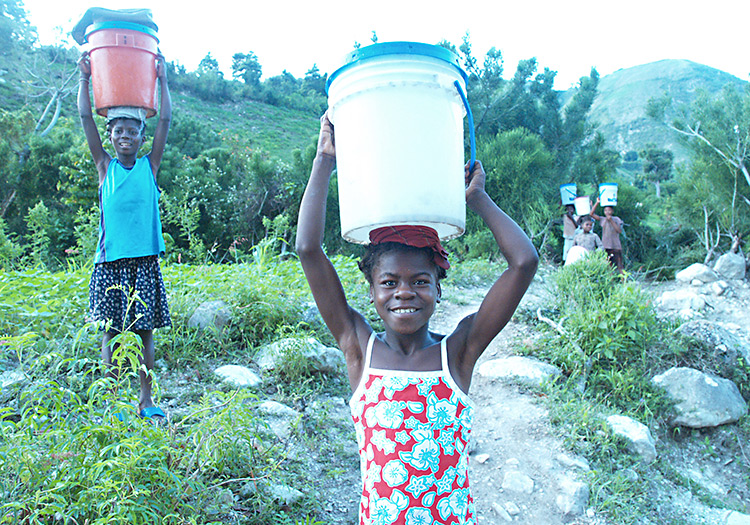
So many children have been doing this since they were very young, and it is all they know, day in and day out.
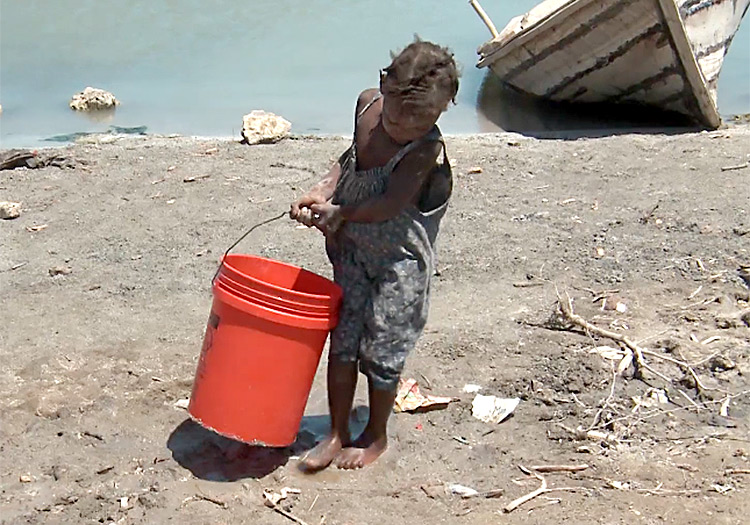
Can you imagine taking your children out of school each day to send them off barefooted through the mountains to bring back a bucket of water? Probably not.
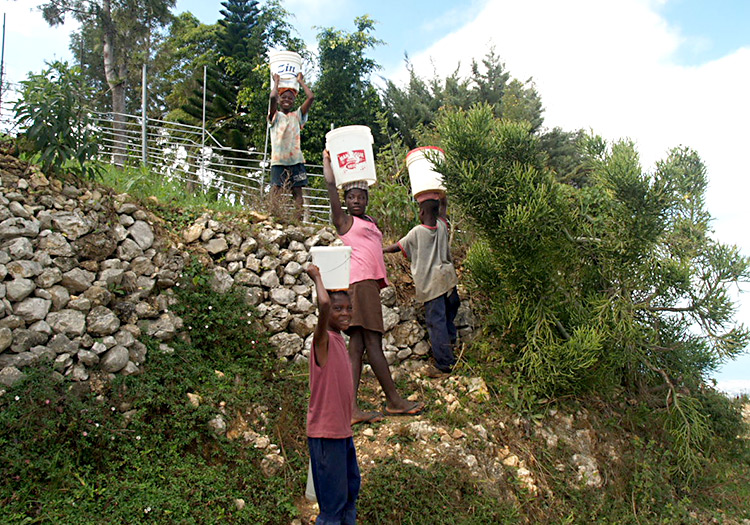
Yet, this is exactly what school-age children must do in Haiti, every day. Along with some of the village women, they struggle to find water for their families. This leaves no time for school or jobs.
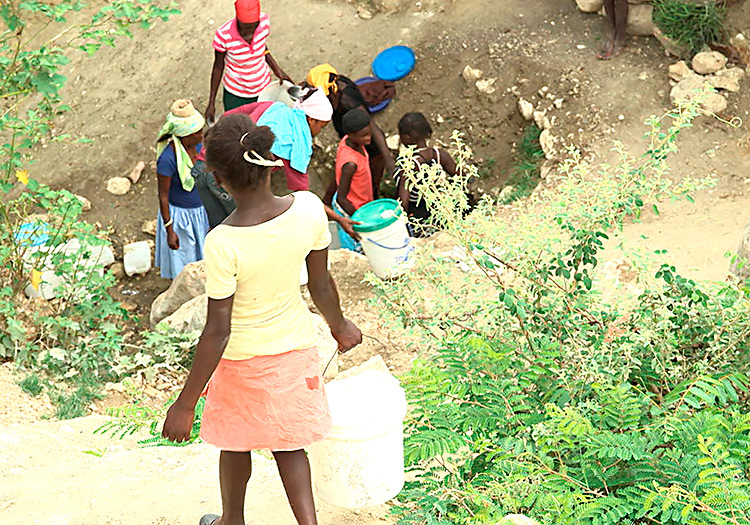
Haiti has been in a severe drought for almost four years, which has made their struggle even worse with long-term effects including lost crops to severe malnutrition and starvation. Waterborne illnesses such as typhoid, cholera, and chronic diarrhea cause more than half of all deaths in Haiti.
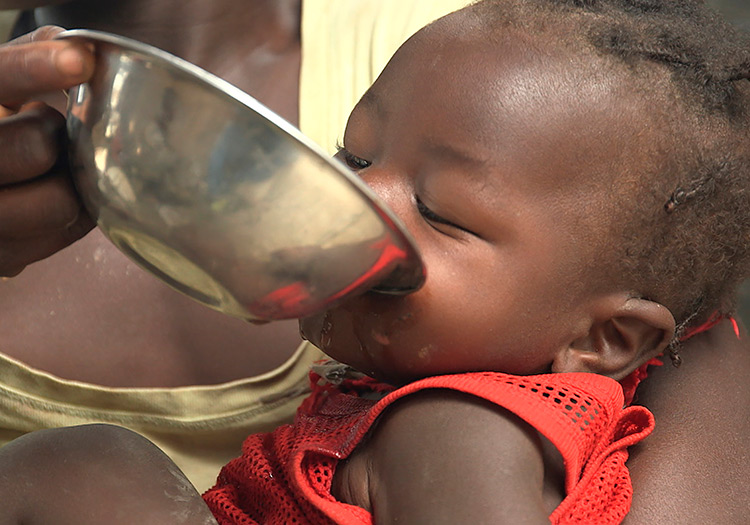
Many water sources are disappearing across Haiti because of the drought. Women and children must travel even farther from their homes to find water that is often dirty, and loaded with parasites and bacteria, and then bring it back to their huts for cooking and drinking. The children will drink anything because they are hungry and thirsty all the time. Contaminated water is the leading cause of childhood sickness and a very high mortality rate among children.
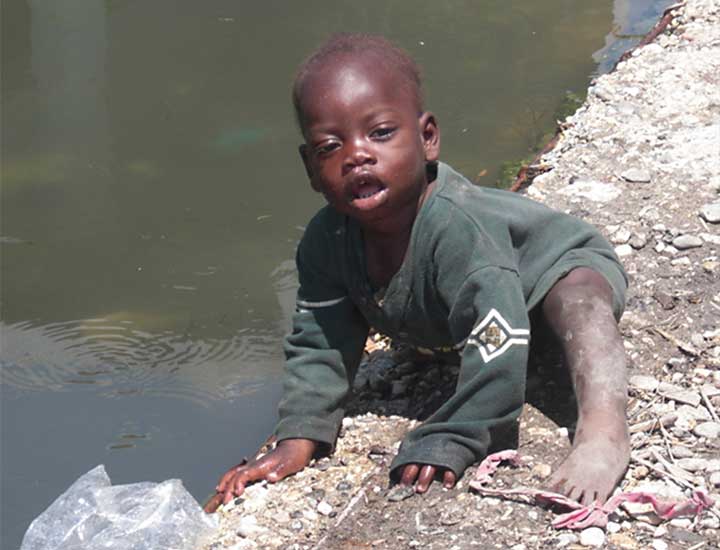
This precious water is so vital to their existence all over Haiti. They need it for cooking.
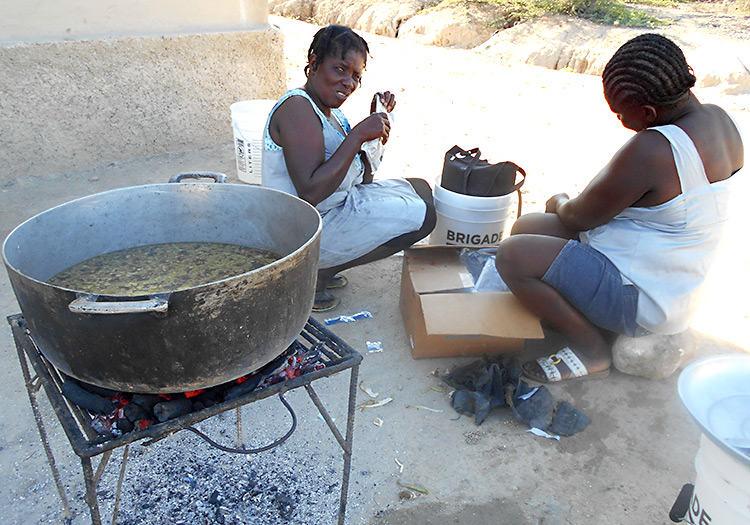
They need it for bathing.
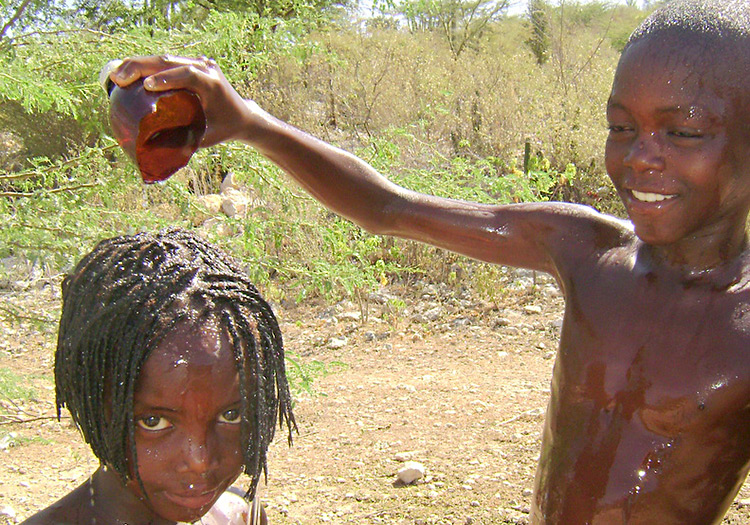
For washing clothes.
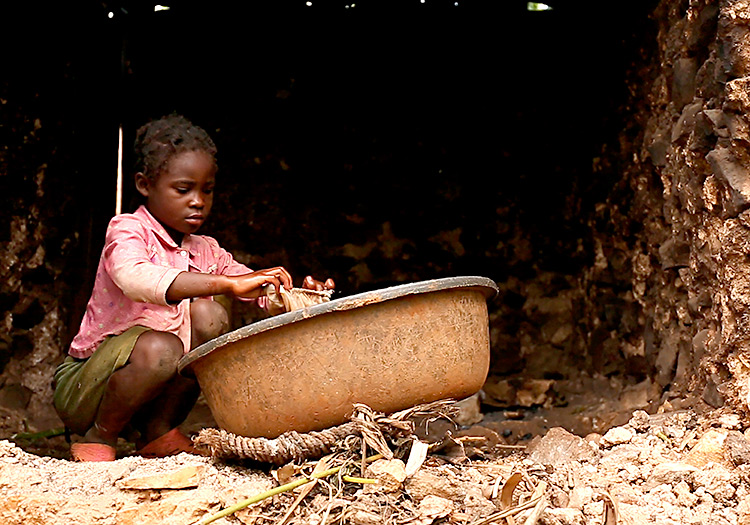
To water their gardens for growing food.

And just for their every day-to-day existence.
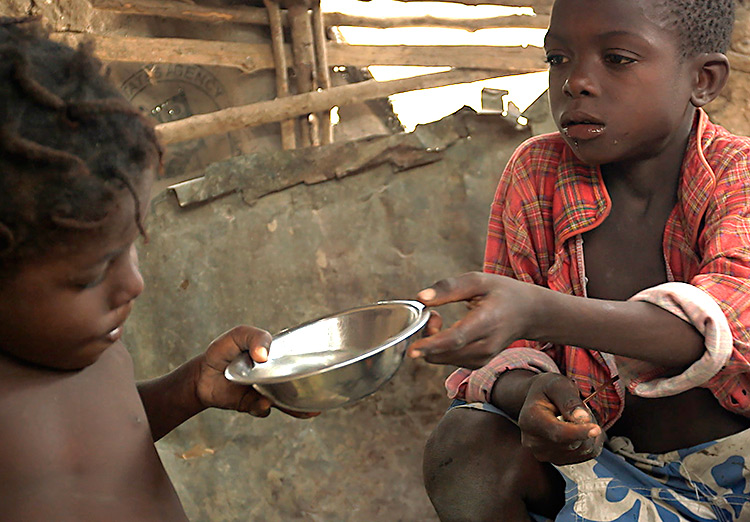
A lot of water holes have dried up because of the drought. So now the women and children must find any trickle of water to fill their buckets.
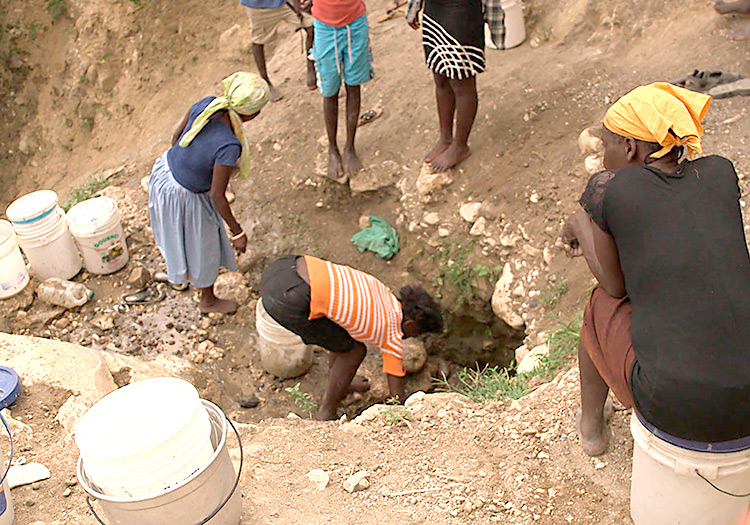
The water they do find usually comes from either underground springs or from garbage-littered rivers, so they often scoop up not only rocks and dirt, but animal and human waste as well.
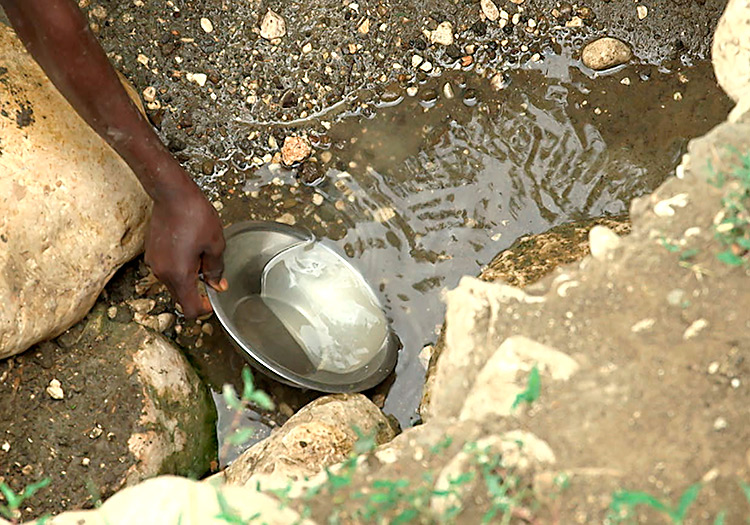
What water that they do find must be strained, without a sieve, and left in buckets until the dirt settles to the bottom before they use it.
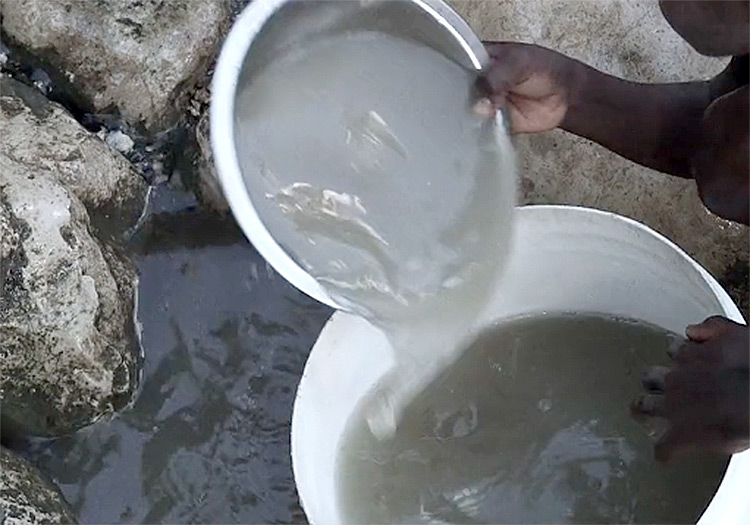
This filthy water is causing so much sickness among the Haitian children, that we are seeing increased cases of malnutrition at our Jesus Healing Center and Malnutrition Center.
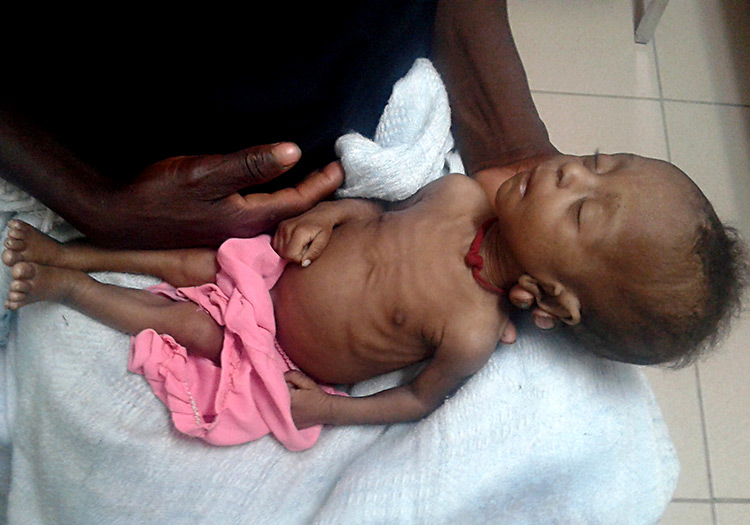
The cases of worms and parasites have also increased because they are using contaminated water for cooking their food and drinking.
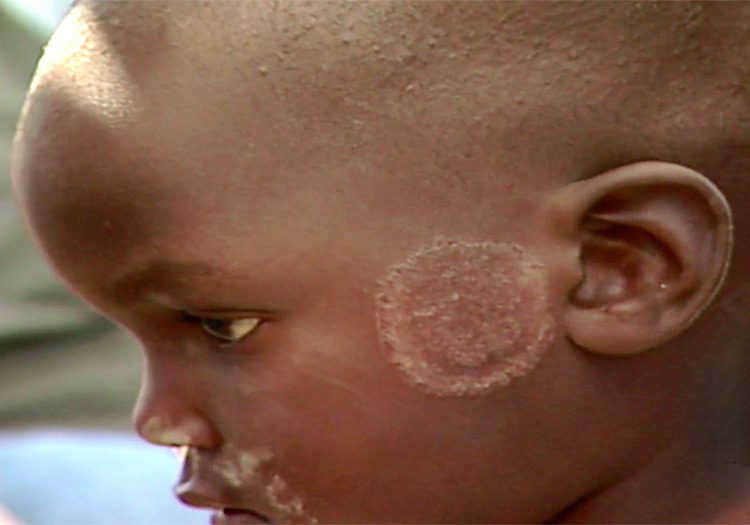
Reports from many Health Organizations around the world, such as WHO and UNICEF have determined that “The water and sanitation situation in Haiti is among the most dire in the Western hemisphere. Haiti is ranked last on the International Water Poverty Index and is considered a water-stressed country where the situation is only going to get worse this year.”
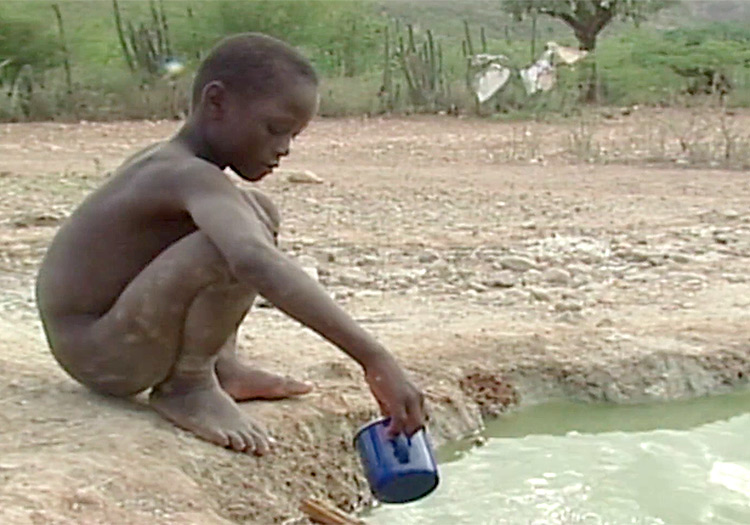
Haiti needs a safe and sustainable supply of water: for drinking, washing, cleaning, cooking and growing food. It’s a basic human right. Love A Child has worked very hard to improve the access to clean water in many communities. In several areas we have dug wells to supply the people with clean water.
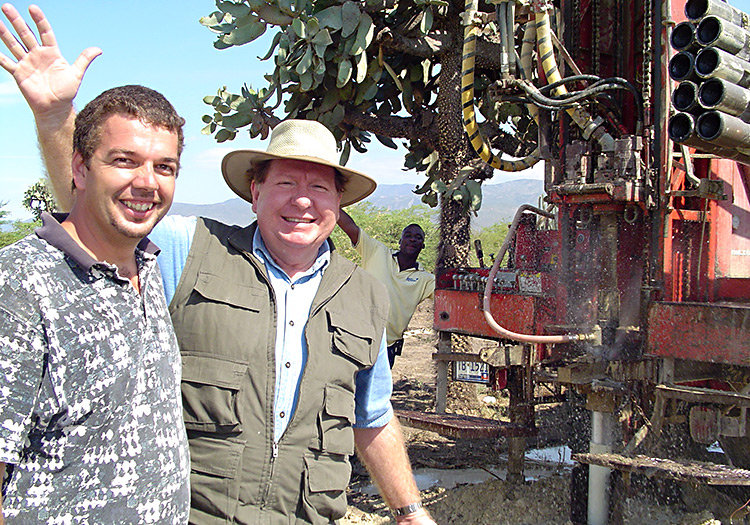
By laying out a water supply system within a community, we can bring water to one location, where the entire village has access to it.
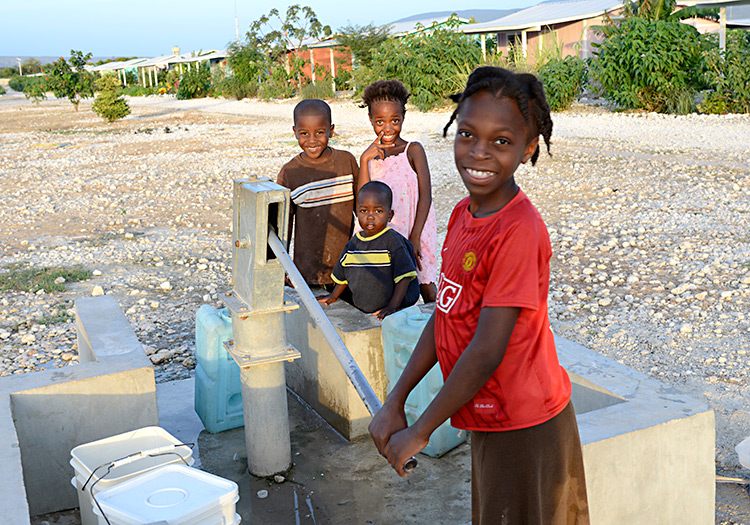
Several of our water supply projects have brought water to nearby schools, which allows for not only drinking water for the children, but they no longer have to travel throughout the mountains in search of that little trickle of water to take home.
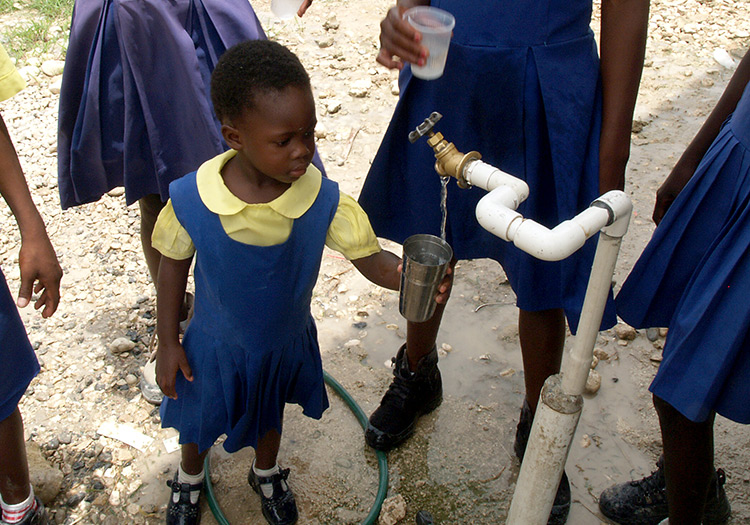
Love A Child is also helping communities find ways of saving and storing rainwater with the use of water cisterns. A rainwater catchment system saves time, conserves water, and produces water that is safer to drink than well water. An average family that uses 20 gallons of water per day would save at least five trips to a far-off well by using a catchment system like this one in the village of Le Tant. Now, if it would just rain!
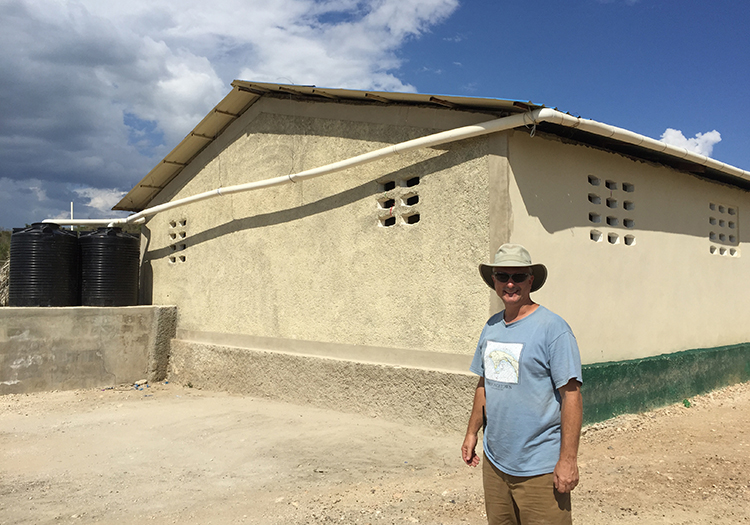
This is just one of our Sustainability Initiatives—Love A Child’s Appropriate Technologies initiative introduces sustainable, small-scale technologies which are affordable, and can have an immediate improvement in time-savings, comfort, health, and safety in daily family life. To learn more about our programs, please visit our Sustainability Initiatives web pages.
Thank you to our partners and sponsors who have supported and worked directly with Love A Child on many of our Sustainability Projects—Helping Haitians help themselves.
God bless you,
Sherry

